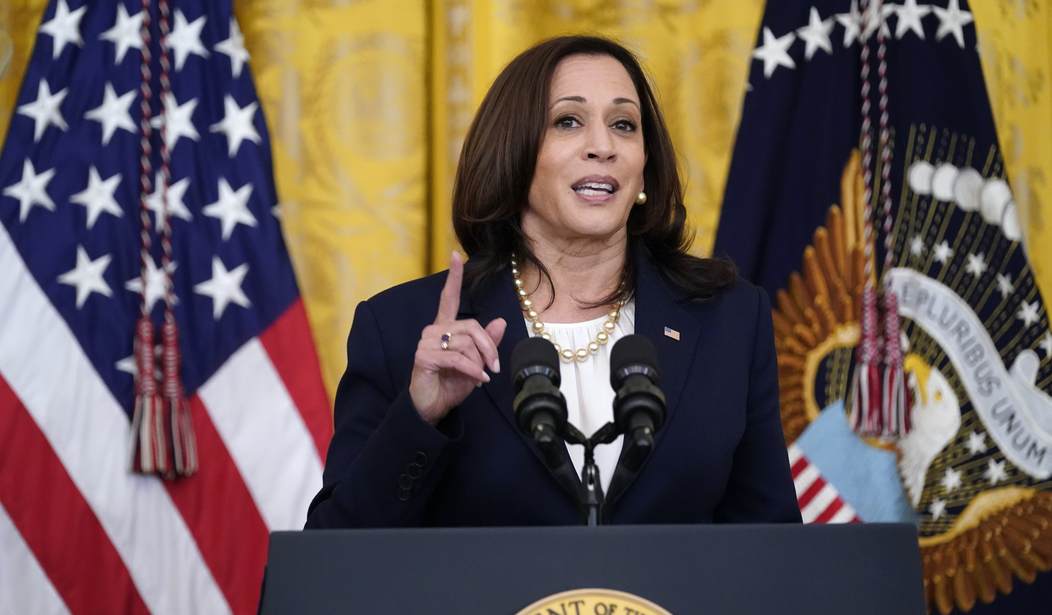After being heckled for months, Vice President Kamala Harris finally made it down to El Paso, Texas. It’s a fine place for a photo op: El Paso is not the epicenter of the migration crisis and has 131 miles of new border wall helping Border Patrol officers manage illegal traffic. But it’s a long way—as in, the entire length of Texas—from the Rio Grande Valley, which encounters more than double the number of attempted border crossers as El Paso every month.
But rather than point out El Paso’s relative success (recognizing that walls are needed and walls work), Harris said we need to focus on the real issues—the “root causes” of illegal immigration. By root causes, Harris means violence, corruption, and lack of economic opportunity in Guatemala, El Salvador, and Honduras. How exactly does she suggest we do that? By dousing them with aid and other assistance. One of the Biden Administration’s first moves was to set forth an aid plan that dumps $4 billion in the Northern Triangle. But that’s window dressing.
First, the United States is an incredibly rich and prosperous country, with a GDP per capita of more than $65,000, compared with Guatemala’s $4,500 (the highest of the three countries). The thought that U.S. policymakers can bop down to visit, sprinkle some cash, and transform the economies of the Northern Triangle defies logic. Building a robust, first-world economy will not happen overnight, and we need to solve the border crisisnow.
Second, the weaker our border becomes, the less prosperou sthe Northern Triangle countries will be. Why? As with all economies, Northern Triangle countries need a middle class if they want to thrive. But middle class individuals are precisely the ones who are leaving their countries for the United States. Hiring a “smuggler”—someone to take you through Mexico and pay the various cartels—is expensive, and costs thousands of dollars, or more, per person. That’s a worthwhile investment for a person who knows he will be ushered in to earn U.S. wages. This decision, made day after day, person after person, guts the Northern Triangle’s middle class, leaving behind those too poor to pay the smuggling fee and those too rich to need U.S. wages. It is for precisely this reason that the United States (like every other country) has a legal immigration system that takes into consideration not only our immigration needs, but also regional and global stability.
Recommended
Third, the United States is geographically unique. We are the only first-world country that shares a 2,000 mile land border with a third-world country. (Third-world country is not a curse word, though people say “developing country” to be politically correct.) Because our challenges are greater, our response must be stronger in order to preserve peace, security, and lawfulness at the border. A weak southern border for the United States means more drugs, more crime, more human suffering, and more chaos than a weak border in any other country.
Policymakers often forget that people understand cause and effect. San Francisco is discovering that where the government removes consequences for shoplifting---shoplifting increases tremendously (surprise!). And in the United States, where the government removes consequences for entering illegally, illegal immigration increases tremendously. Attempting to eliminate the “cause”---like a person’s desire for shoplifted goods or desire to live in the United States---is essentially a call for global socialism. That is, in a market where demand outpaces supply, if breaking the law is okay until supply and demand are equal, the only real solution is to limit and re-distribute supply. This is a particularly absurd approach to take in the immigration context. Almost 690 million people live on less than $2 per day---should each be let in until we can address global poverty? What about those that live on less than $5 per day? $10?
Having visited the southern border with the Trump Administration, I credit Vice President Harris for at least showing up. Learning about the everyday experiences of the men and women of the Border Patrol is undoubtedly vital to tackling the crisis. But Americans deserve a real solution. Ending Western Hemisphere poverty, while a noble goal, is an “answer” best left for beauty pageant hopefuls, not Vice Presidents.
May Davis is a visiting fellow at Independent Women's Forum and a former legal advisor to President Donald J. Trump.
























Join the conversation as a VIP Member